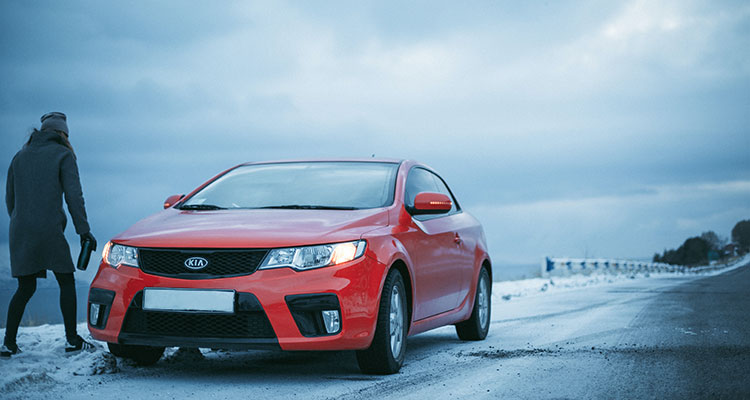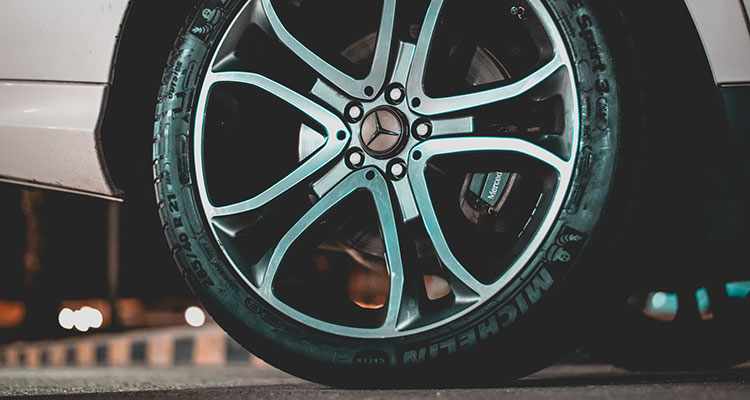How much are they? What do they do? And are they worth it?
It’s certainly no secret that Britain gets a great variety of weather. In the short-lived summer, it can be scorching hot with highs of over 33℃ and in the winter, which seems to account for half of the year, can see constant rain, a bit of snow and ice and temperatures below freezing.
With the UK often being a very wet and somewhat cold place to be, it’s no wonder that winter tyres are quite popular among motorists, but while they’re certainly not as useless as summer tyres (for our 10 days of summer weather per year) the question remains, are winter tyres really worth it?

Winter tyres differ from all-season tyres thanks to their compound and tread. Where non-winter tyres may stiffen up as temperatures drop, making them less flexible and grippy, the rubber in winter tyres contains more silica meaning they do not harden as much. Also, the special tread pattern allows for superior grip in wet, icy and snowy road conditions.
That being said, the reverse of these benefits also apply, making winter tyres inferior in dry and warm conditions. They won’t grip well resulting in longer stopping distances and may wear faster as well.
The UK doesn’t get snow often

One could easily argue that snow is a rarity in the UK. If you’re anywhere near the coast or in the south then snow probably comes one in every four winters. If you live up north, however, snow can be a more commonplace but still nowhere near as frequent as other European countries.
Although winter tyres are usually closely associated with snow and ice, their uses extend beyond that. These special tyres excel in temperatures under 7℃ and whether it’s dry, wet or icy, winter tyres will likely outperform all-season tyres when it comes to stopping distance, making driving that little bit safer.
Damage your alloy every year with putting them on

If you’ve got a nice set of alloys on your car that aren’t kerbed and rather pristine, you may not want to be swapping tyres every year. The process of swapping tyres on a wheel is not a gentle one and can often leave marks on the rims of your wheels, especially noticeable if they’re black wheels.
Unless you have a very considerate and professional tyre fitter or your alloys are already a bit scuffed, we can’t say it’s a great idea to be swapping tyres about willy nilly. If you do, expect some little marks on your wheels
They’re expensive

Owning a car certainly isn’t cheap so why would you want to have another expense to pay for on top of the servicing, insurance, fuel and repair/maintenance costs? Ranging anywhere between £60 and £170 per tyre, depending on your wheel size, the costs can quickly rack up.
Add the cost to fit them on top and let’s not forget you’ll need to pay again when you take them off and also you have to worry about where to store them!
Just drive slower

Unless you live in Scotland or any other part of the country that gets particularly harsh winters, perhaps you could skip the winter tyres and instead, just drive more cautiously.
It’s too often that we all see people driving far to fast in heavy rain or even in snow or icy conditions. If we all just slowed down and drove with greater concentration during the winter, the risk of an accident would fall. That being said, there are certain
All in all, it would seem that winter tyres aren’t really worth it for most people. If you often find yourself skidding in the winter or live in an area that is colder than the rest, it may be a good idea to invest in a set of winter tyres but just be prepared deal with the hassle of it!
Let us know if you think winter tyres are worth it, in the comments!
If you enjoyed this, you may also like: 10 of The Most Economical Cars of The Last 5 Years
For more articles like this, receive our weekly e-newsletter, including partner deals and all things motoring, register your email below.
Please note: You cannot subscribe to Smart-Motoring unless you put a tick in the checkbox below to indicate have read and agreed to our privacy policy.




Leave a Reply
You must be logged in to post a comment.